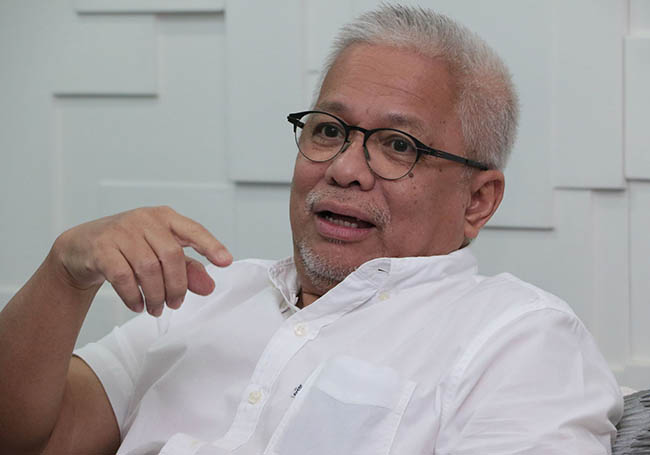
“Start small. Be an apprentice before starting your own business. Use your own money. Avoid borrowing from the bank.
“Conduct your business with sincerity. Don’t start with the intention of cheating. To become a leader you must know how to lead. Show a good example and appreciate your employees. You must have a good imagination and think outside the box.”
These were among the pieces of advice by Hussamuddin Yaacob, founder
of the Karangkraf Group, to the “Entrepreneurial Aspiration” workshop by the Institute of Islamic Understanding (Ikim) recently.
Around 60 participants attended the two-day workshop by Ikim’s Consultancy and Training Centre.
Participants heard the voice of experience, coming from a man with his own printing and publishing empire.
Life’s turns
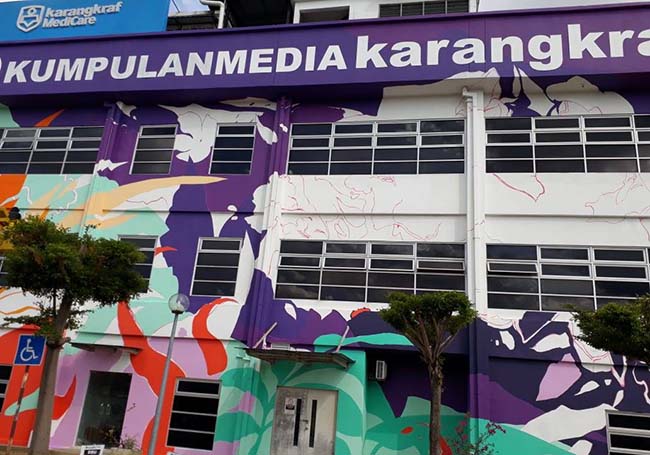
Hussamuddin grew up in poverty and was often bullied in school because of his short stature.
Today, his printing and publishing business yields annual sales of some RM400 million.
He makes clear that the route to the top is not without difficulties.
In order to become a successful entrepreneur, he believes one must start small.
“It is not at the bottom that you fall, it is when you are at the top,” he said.
His first exposure to business when he was a small child filling in at his father’s bookstall.
“Selling a newspaper for 20 sen would yield a profit of 4 sen. I got 15 sen of profit for a RM1 magazine, and if I sold three of those I got 60 sen in profit.
“Although my father’s business was small, I learned a lot about business through it. I could also read for free,” he said.
He applied his skill in school, where he took orders for books.
“In university, I ran a small business photocopying books and question papers,” he said.
He read Economics at Universiti Kebangsaan Malaysia (UKM).
Hussamuddin followed Tun Mahathir’s advice for Malays who want to go into business: start with retail.
“Retail business trains us. We see capital and profits more clearly,” he said.
Hussamuddin said business is like a tree, which starts from the roots.
Lesson in economic
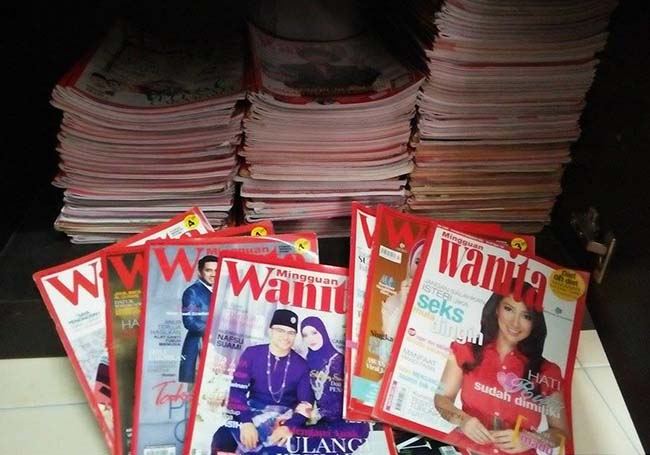
Another childhood experience that helped him develop business acumen was getting his family’s food supplies from the wet market.
Hussamuddin initially felt it was unfair to be tasked with a chore he thought would be better given to an older sibling.
He later learned that the experience helped him a lot in his business endeavours.
He would be given only RM1.50 or RM2 to spend, but he always managed to return with a full basket.
“I did some networking with the aunties selling at the market. I learned how to choose fresh fish. I learned how to haggle. The aunties also pitied me, a small boy in patched-up clothes.
“If other people could get 12 fishes for RM1, I could get 15.
“In hindsight, I understand my mother’s intentions when she sent me to do the marketing. Perhaps she felt this was another way to help me develop skills, as I wasn’t good academically.
“The process helped me become a good businessman,” he said.
“Business-wise, I am quicker than my siblings.”
Experience speaks

His love of reading and his experience managing his father’s business contributed to his friendly personality.
While managing his father’s bookstall, he interacted a lot with the customers.
“I made numerous friends and got to know their tastes in books,” he said.
When he delved into publishing, he did plenty of research into the interests of magazine and book readers.
“The reason my products sell like hot cakes is because I know what my readers like,” said Hussamuddin.
He went through a similar process before setting up his own printing company.
“I hired someone to print my books and magazines for 10 years. Every month I paid them RM1 million to print. I watched the entire process.
“I was taught to mingle with the supplier and retailer from young. And since I was one of their biggest customers, I was allowed into the factories to study their methods and processes.”
Although he did not work for the printing companies, this was a form of apprenticeship, he said.
He also researched the best and latest printing technologies.
“When I finally went into the printing business, I had a RM1 million business that was better than those I learned the trade from,” said Hussamuddin owns Ultimate Print Sdn Bhd, the largest commercial printing company in Malaysia.
Apprenticing
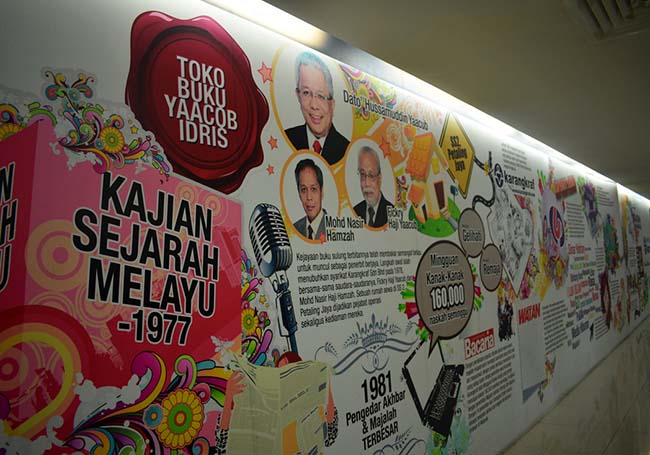
Hussamuddin strongly believes that those wishing to go into business should go through an apprenticeship first.
“If you are an engineer and would like to start a company — say, to repair air conditioning units — first do a stint of six months or one year at an existing setup. It’s all right to delay your dream a bit.
“If you start a business without experience, you will lose. If you have capital of RM100,000, you may lose it all,” he said.
Hussamuddin admires the work ethic of the Chinese, alongside of whom he worked when he was young.
He observed that whatever business they engaged in — running a grocery story, a coffee shop or a supply store — Chinese traders tended to bring their wives and children to the shop.
The children would do their homework while being exposed to business tasks such as managing the shop or becoming cashiers.
“The workers would be so well-trained that in 10 years they could open their own business,” he said.
“Although he was only a worker during those 10 years, the suppliers already knew him. Half of the employer’s customers would go to him when he started a business.
“This is the business synergy of the Chinese. This will give his business a 99 per cent probability of being successful.
He said many successful Chinese businessmen started off as apprentices, but had discipline and were good financial managers.
Good financial management
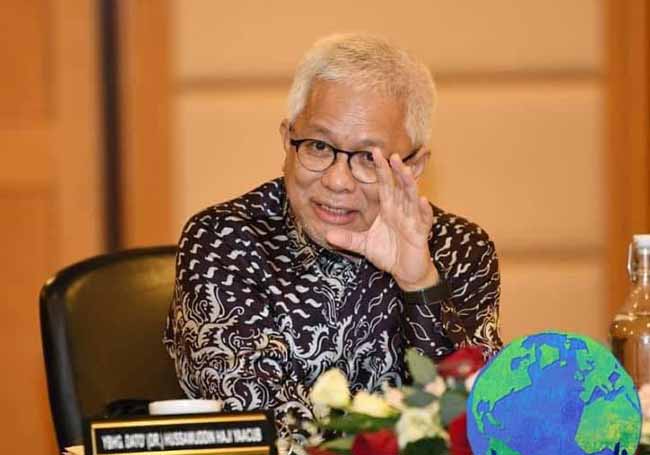
He said those who do business need to understand what is sales and what is
profit.
“I noticed that if my father made a sale of RM40 that day, his income was not RM40. His profit was perhaps RM4, and he did not spend the RM4. He would spend just RM1.
“Nowadays, I see that when a person is awarded a RM1 million project, he thinks he has made a profit of RM1 million. He buys the big house, the big car, and the big-screen TV.
“In actuality, if he has a RM1 million project, his profit is perhaps only RM100,000. If he spends that RM100,000, he won’t be able to work on another project,” Hussamuddin explained.
Talking about his personal experiences, Hussamuddin said he still tightly controls expenditures even though he owns the majority of the company shares.
“I have a fixed salary. When we do business, we must make ourselves employees. Don’t assume that all the money is ours to take.
Road to success
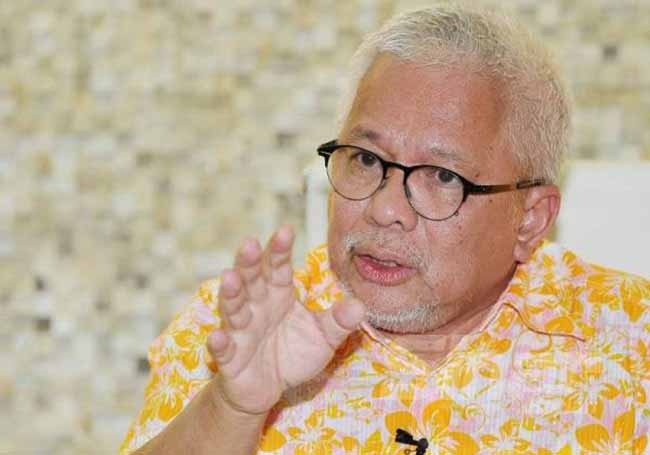
Among the factors that allowed Karangkraf to expand was that almost all profits were channeled back into the company, according to Hussamuddin.
“We reinvest a majority of the profits we make. Some people find it hard to believe that to this day, we have never declared dividends.
“We quickly grew from a small company to the one we are today. We started new projects, new magazines, added new factories and machines.”
The company stayed positive at all times, said Hussamuddin, even in the face of economic uncertainty.
“During the world financial crisis, people were let go and they spent their time at home. They didn’t go to the cinema or shop for new clothes. They were at home, reading the newspaper, magazines and watching television.
“And I was producing more magazines and books,” he said.
Business focus
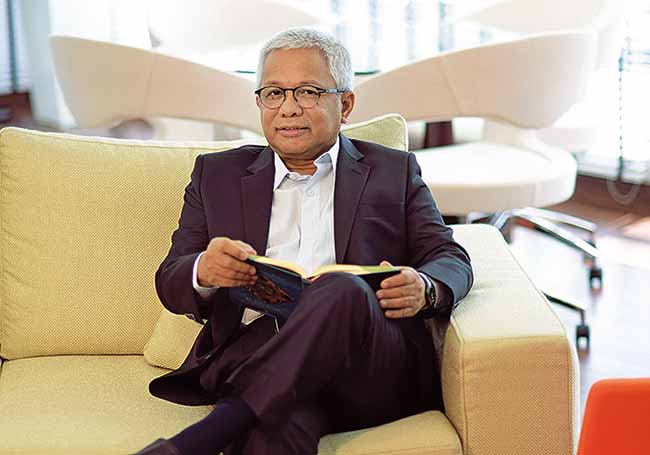
Hussamuddin said the company’s focus is a contributing factor in Karangkraf’s successs.
He reminded workshop participants that it is important to focus on what they have learned and understood instead of what is proposed by others.
“If someone tells us we can make money in a field we know little about, don’t do it. That’s a pitfall, especially when we are guaranteed profits.
“There is no business that guarantees profits. What is important is reducing costs,” he said.
Today, Hussamuddin stands proud of his business empire. His printing company covers 10.1 hectares, located 550 metres from the Shah Alam city centre.
“Imagine 33 years ago — that was where I sat, ate, and did business.
“When I first started business, upon graduating, I did what I could to survive. I bought roti canai in the morning and asked for extra gravy. I kept the gravy for lunch, when I boiled an egg and cooked rice to eat with it.
“That is effort. Effort requires imagination, too. That is what they mean when people say, think out of the box,” he said.
More advice
Hussamuddin is not in favour of the idea that, to do business, one must have an office.
He said a lawyer who wants to open a firm can start from home with just a computer, and expand when he starts getting clients.
He also said that it is unwise to start a business from a bank loan.
“You take out a loan of RM10,000 to pay for legal fees, project papers and stamp duty, and then you only have RM9,000.
“Factor in the interest rate of 8 percent. This is like losing before even starting.
“Start with your own money. If it’s our own money, you have to see it through to the end,” he said.
– Bernama











